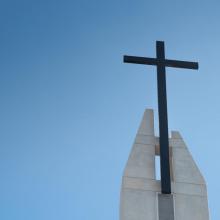white america
ONE SUNDAY MORNING at a small church in rural North Carolina’s Blue Ridge Mountains, a congregant discovered a snake slithering under the pews. Without interrupting the sermon, he picked up the snake and took it out of the sanctuary. When the service ended, the pastor, Brandon Wrencher, heard about what happened.
He laughed.
“We’re not snake handlers—up the street is a Pentecostal church,” said Wrencher. “They do not tell you these things in seminary. I did not prepare.”
There were a lot of things in Todd, N.C., for which Wrencher was not prepared. The unincorporated community of several hundred people sits about 30 miles from the Virginia state line and 20 from the Tennessee border, just outside the Cherokee National Forest. Todd boasts a couple of churches, a bakery, a closed-down general store, and zero stoplights. Wrencher estimates that half the population is over 50.
Social poverty
When Wrencher, his wife, and their children moved to Todd in 2013, the minister had to install a personal cell phone tower on his property so his family could get service at home. But more significant to Wrencher, who had previously worked at a predominantly African-American church, was the loneliness of his new ministry. That included both his own loneliness as one of the few African Americans in Todd and the widespread loneliness he discovered in the community.
“I knew it was all white. I knew it was rural,” said Wrencher. “I knew this church had started this intentional community and was trying to do revitalization work in the community and the church. I didn’t know anything beyond that.”
Todd’s problems quickly hit him. A once-vibrant timber industry was no more. The community was suffering from hunger and land neglect. But most devastating was what Wrencher called “social poverty.”
America is still led by an apathetic majority void of compassion, empathy, and sympathy. A majority unable and unwilling to confess their biases, hate, phobia, and toxicity, making themselves apathetic to the reality of African Americans. From their perspective intentional and toxic discrimination, racism, and police practices is not their problem; they have no role in this plight and degradation.

Image via Thanate Rooprasert/Shutterstock.com
First came the mayors of New York, Chicago, and Seattle declaring their cities “sanctuaries”, and saying they will protect undocumented immigrants from President-elect Donald Trump’s plan to deport them.
Then thousands of students, professors, alumni, and others at elite universities, including Harvard, Yale, and Brown, signed petitions, asking their schools to protect undocumented students from any executive order.
Now, religious congregations, including churches and synagogues, are declaring themselves “sanctuaries” for immigrants fleeing deportation.

Protesters march against police shootings and racism during a rally in Washington, D.C., on Dec. 13, 2014, Rena Schild / Shutterstock.com
In the wake of Sandra Bland’s death, I’ve seen comments from other white Christians on social media defending the arresting officer, denying that Sandra Bland was mistreated, blaming her for what happened, and denying that race had anything to do with what happened to her. Their responses were so knee-jerk automatic that I probably could have written them ahead of time before learning anything specific about the events in question. We humans can be quite tribal, and we instinctively tend to identify with the people who are most like us.
Many whites balk at the suggestion that their views and assumptions might be racist because they know themselves to be moral people who live decent lives and maybe even have some black friends. They certainly don’t hate anybody, and they aren’t supporters of the Ku Klux Klan. Because they understand racism on an individual rather than systemic level, it seems impossible to hold together an image of oneself that contains both “good person” and “racist.”
The last two movies that my wife and I had the chance to watch were Avatar and The Blind Side. Not sure how that happened, but both movies had very rich missiological and race themes to them. Or maybe I just see everything in that way.

